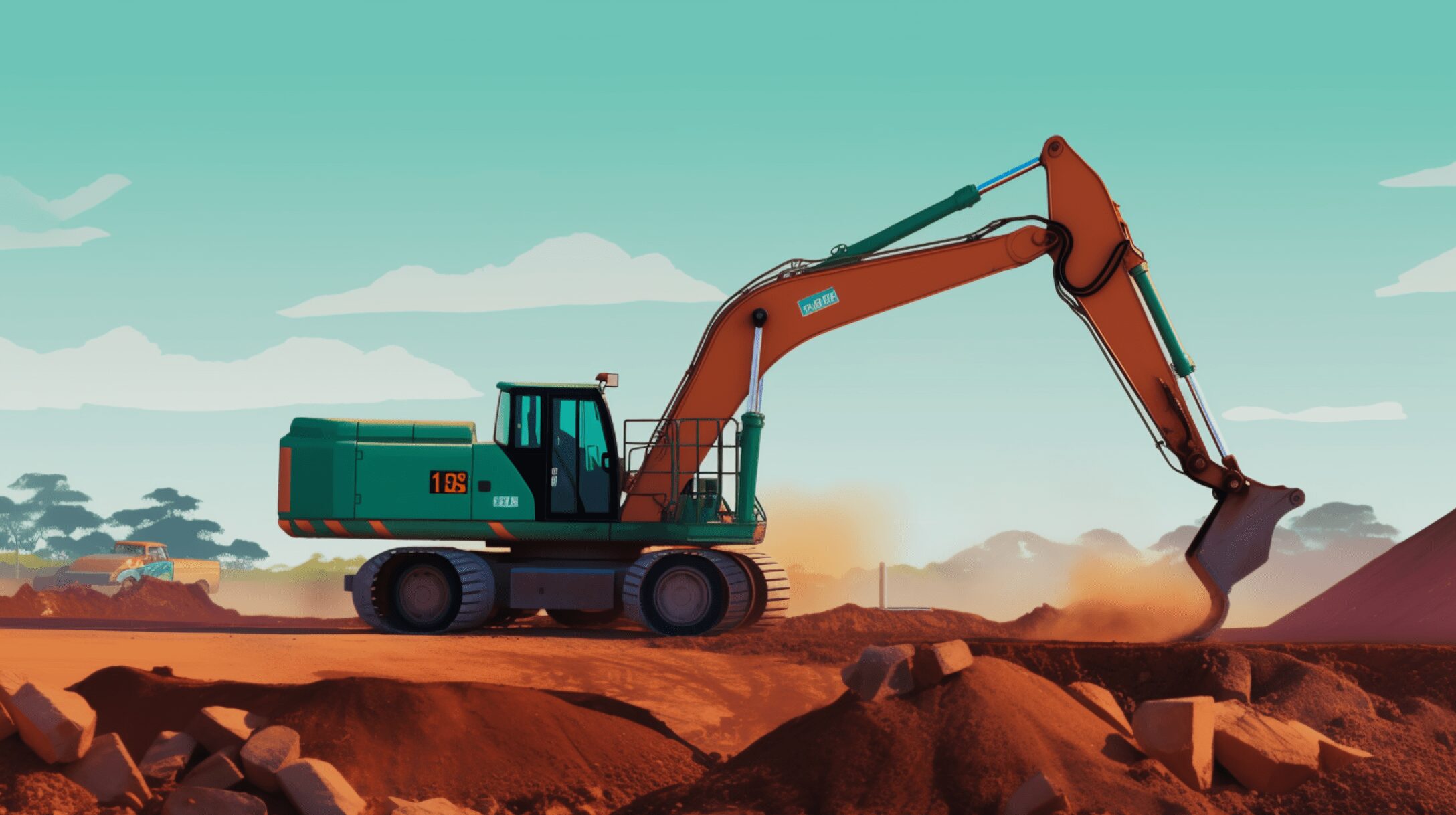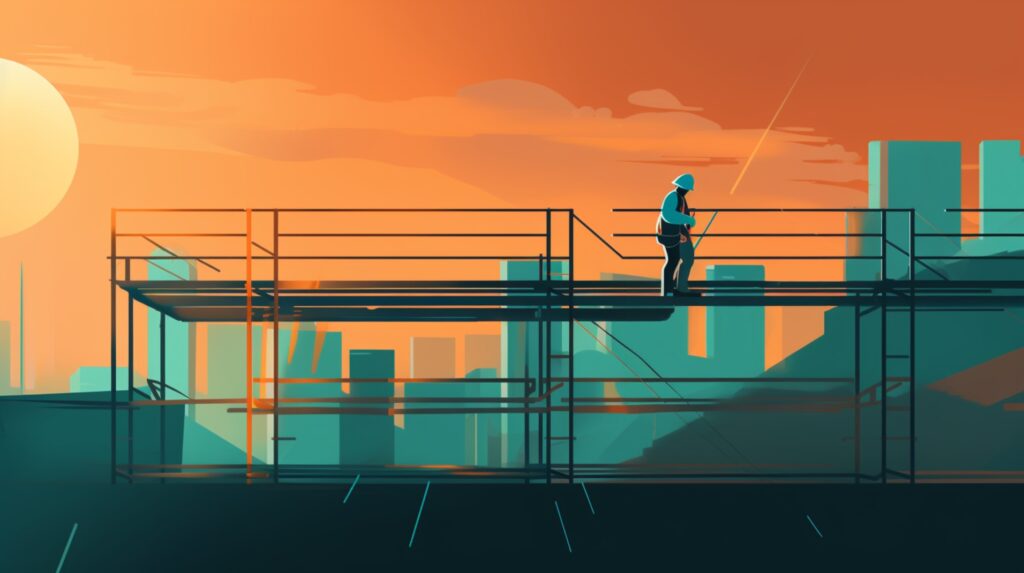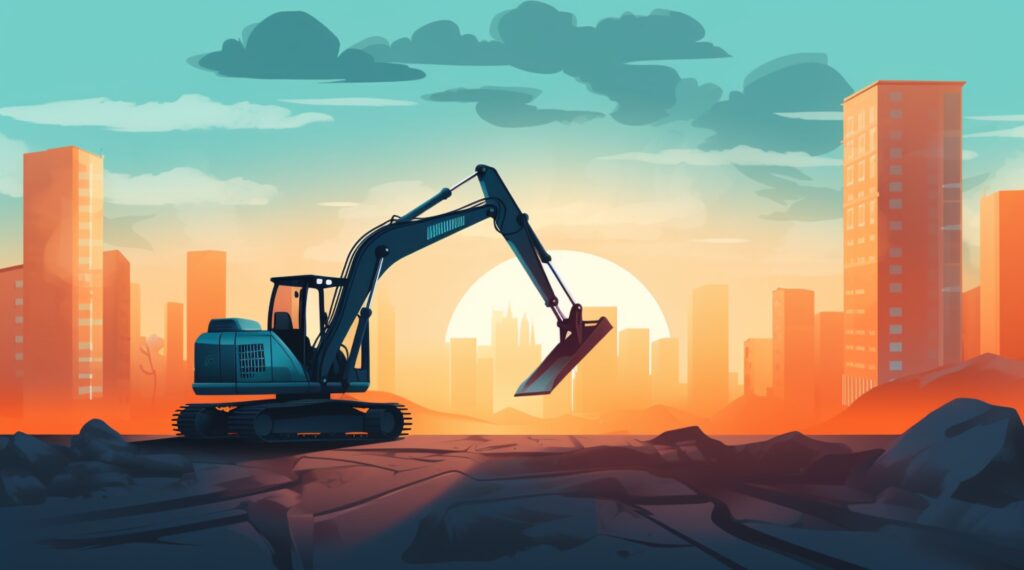
We are reader-supported. When you buy through links on our site, we may earn an affiliate commission.
Construction sites look like gold mines to miscreants looking for a quick buck. Tools cost a pretty penny, and a used hammer has as much value as a new, shiny model. Materials also fetch high prices, with copper theft alone costing some firms millions of dollars in loss. Heaven forbid someone makes off with a backhoe.
Your financial success and ongoing viability depend on safeguarding your assets while in the field. Here are 11 tips for improving construction site security.
1. Establish and Customize Your Security Plan
Every construction crew needs standard operating procedures that you should outline in your employee handbook. Part of this document includes a comprehensive security plan. What responsibilities fall on the shoulders of the last crew member leaving for the day? What should workers do if they spy trespassers?
Your version should include procedures for access and entry to the site and various equipment. It should designate authorized personnel responsible for overseeing daily operations and providing contact information so that field crew members can easily locate the person in charge with questions. Include spots for all staff to initial, indicating that they have read and understand the guidelines.
While you should have a master security plan, keep in mind that you may need to modify it for individual jobs. For example, you might not hire 24-hour guards for every project but reserve your budget for those gigs located in high-crime areas.
2. Light It Up
Visibility is a miscreant’s worst enemy. Your job is to provide as few shadowy hiding spaces for thieves to lurk with plenty of light.
Many experts recommend the brighter, the better, but be strategic. Ensure you have broad enough floodlights to reach every corner — otherwise, the contrast creates dark shadows perfect for disguising unsavory behavior. Motion detectors may be your best bet for minimizing neighbor complaints about light pollution while startling unsuspecting trespassers and deterring them from further mischief.
3. Protect Your Power Sources
However, the best lighting system won’t improve security if all a thief has to do is pull the plug to plunge your construction site into darkness. Furthermore, cutting the cord may disable your alarms, meaning you may not know anything is amiss until you arrive onsite the next day to find your tools and materials missing.
It might be problematic to bury lines at a temporary construction site, so run your wires high to deter attempts to cut them. Ensure all wired alarm systems have a battery backup that alerts you to cut wires.
4. Fence Your Site
Protecting your perimeter improves your construction site security while reducing liability claims. Unfenced sites risk trespassers getting hurt on equipment or falling into hazards, leading to costly lawsuits.
A 6-foot chain-link fence meets the standard but is easy for athletic thieves to scale in seconds. Consider going with an 8-foot model, especially in a high-crime area. Pair your perimeter fence with no trespassing signs — although they may do less to prevent miscreants from entering as they protect you from potential liability.
5. Surveil the Premises
Depending on the size of your operation, you may wish to hire professional security guards to surveil your property. These individuals offer multiple advantages — including acting as a deterrent.
However, you shouldn’t go without video surveillance to secure your site. Such technology enables police to review footage, helping them identify and capture those responsible should theft occur. Additionally, it can alert you to problems happening elsewhere on a sizable site, as even the best guard can only be in one place at a time.
6. Secure Your Tools and Materials
Tools and materials attract thieves for different reasons. Both fetch a cherry resale price, making them frequent targets for those who want cash in hand. However, unscrupulous workers or site visitors might also appropriate power equipment for personal use — with no intent to return it.
Keep all tools locked in storage containers when not in use. You may wish to add a sign-out sheet to identify which team members had which equipment last. To some, such measures can seem like unnecessary time-wasters — use your best judgment.
Schedule your material deliveries strategically so that you don’t have lumber or metal you won’t need for a few weeks scattered about your site. Such measures also reduce injury risk by reducing the amount of clutter on your construction site while boosting security.
7. Create a Key Checkout System
You can’t lock a backhoe in a Jobox. However, you can create a key checkout system for heavy equipment so that you know who is responsible for each item.
Furthermore, part of construction site security entails training staff to use such equipment properly. While OSHA provides no license for heavy equipment operators, they require each employee operating a powered industrial truck to undergo training and certification through their employer. Your key checkout system doubles as evidence that you permit only authorized personnel to use such devices.
8. Screen Your Staff Members
You probably trust your employees without hesitation. However, three-quarters of workers steal from their employer at least once, with nearly half of them doing so twice or more.
Screen your employees — but don’t let fear dictate your hiring decisions. For example, a 30-year-old worker may have made a stupid mistake at age 18 that landed them with a record. However, use your judgment regarding their character, especially considering how many people behave dishonestly. Such an individual might be much more honest than someone who thinks going home with pockets full of free nuts and bolts is no big deal.
9. Provide Security Awareness Training
You might be the big boss, but you’re ultimately only one person. For your construction site security measures to work, you need everyone on your team to buy into your plan.
Offer regular security awareness training, requiring all employees to attend. Ensure you answer questions like what they should do if they notice a curious child straying onto the site or a suspicious-looking passerby lingering at the fence. Have each staff member sign off on their understanding and provide incentives. If your job comes in under budget thanks to less shrink, share the love in the form of bonuses.
10. Manage Visitor Traffic
If you only manage ground-up builds, you might not have much outside personnel visiting your site other than the usual passel of inspectors. However, what if you get hired to tackle a major grocery store remodel? You need a plan to manage the inevitable visitor traffic.
Proper signage is key. You should also station someone at your site entrance to go over the rules and provide hard hats and hearing protection as necessary.
11. Contact the Authorities
Part of construction site security entails alerting the authorities when incidents occur. You’ll need to file a police report to support your loss claims for insurance. Furthermore, reporting such incidents allows communities to keep accurate crime statistics and possibly recover the stolen property.
Improving Construction Site Security
Construction site security is a must for ensuring your ongoing operations. Theft costs small businesses millions of dollars each year and some don’t survive the loss.
Follow the 11 tips above for improving construction site security. You’ll reap greater profits when you don’t constantly need to replace tools and materials.










